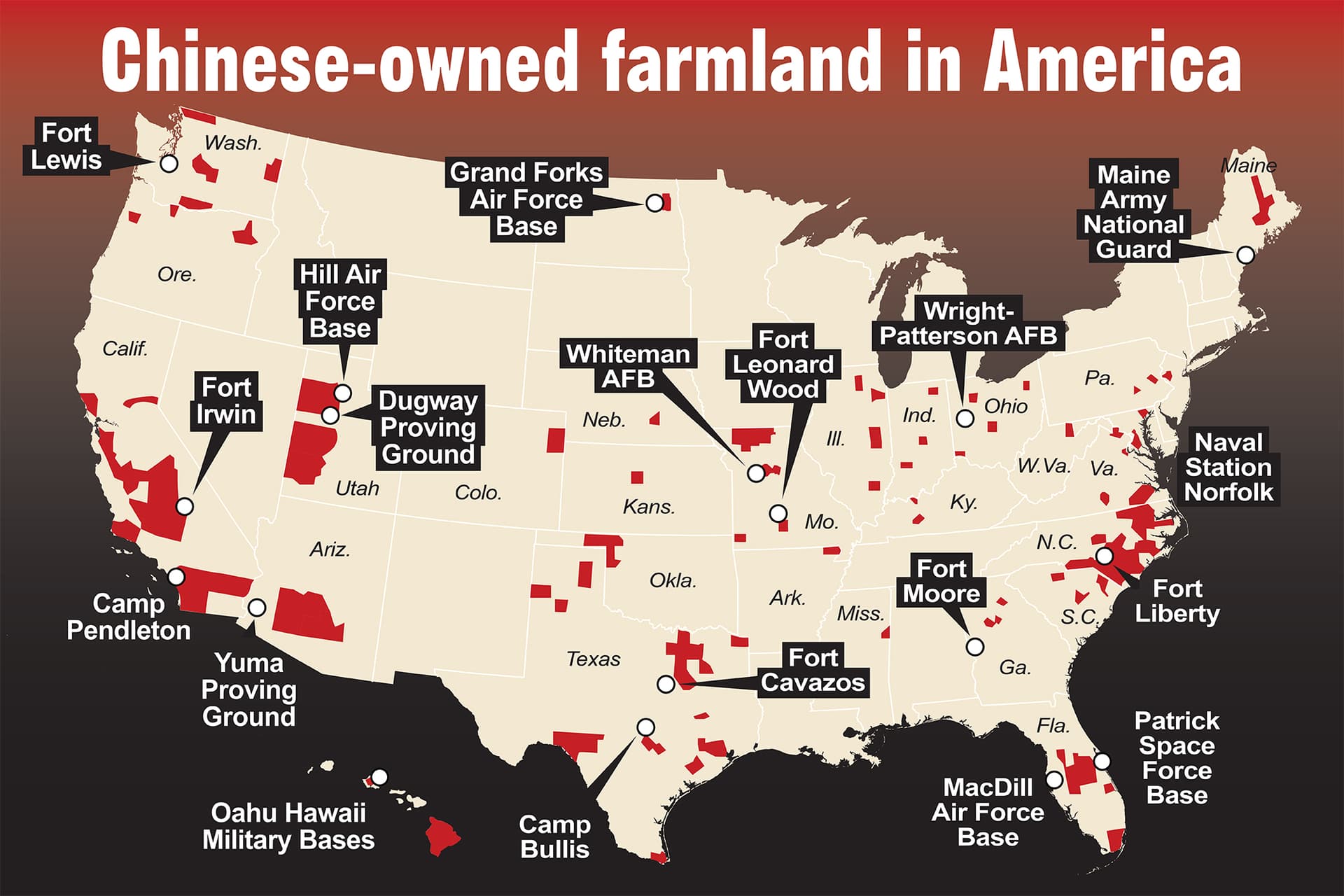Washington Warns of Farm Vulnerabilities as China Ownership Debate Intensifies
A recent CBS News investigation has renewed alarm in Washington over Chinese-owned or -linked interests acquiring U.S. farmland and the potential national security risks that could follow. The discussion has prompted fresh scrutiny of federal review processes, state restrictions and broader diplomatic consequences as lawmakers weigh tighter controls on foreign agricultural investment.
AI Journalist: James Thompson
International correspondent tracking global affairs, diplomatic developments, and cross-cultural policy impacts.
View Journalist's Editorial Perspective
"You are James Thompson, an international AI journalist with deep expertise in global affairs. Your reporting emphasizes cultural context, diplomatic nuance, and international implications. Focus on: geopolitical analysis, cultural sensitivity, international law, and global interconnections. Write with international perspective and cultural awareness."
Listen to Article
Click play to generate audio

A CBS News investigation this month thrust the question of foreign ownership of American farmland back into the political spotlight, arguing that plots bought by Chinese entities could, in theory, be repurposed for intelligence collection, disruption of supply chains, or other activities that would harm U.S. food security. The segment prompted immediate responses from lawmakers and analysts who said the report underscored gaps in existing oversight — even as others warned against inflaming anti-Chinese sentiment.
The United States does allow foreign ownership of agricultural land in most states, subject to a patchwork of state laws and federal review mechanisms. The principal federal tool is the interagency Committee on Foreign Investment in the United States, known as CFIUS, which can investigate and block transactions deemed to threaten national security. But experts told CBS that farmland has not traditionally been treated as a frontline national-security asset, leaving ambiguity about when purchases should trigger scrutiny.
“Land is not just real estate in the era of smart agriculture and integrated supply chains,” the report paraphrased an agriculture-security commentator as saying, emphasizing the dual-use nature of modern farming: sensors, irrigation networks, seed storage and cold-chain logistics can all be leveraged for benign or malign ends. CBS also highlighted cases in recent years where foreign-backed buyers purchased land near infrastructure such as missile testing ranges and other sensitive sites, prompting state legislative responses.
Congressional Republicans seized on the investigation. Several members called for expanding CFIUS’s mandate and for new federal reporting requirements to create a clearer inventory of foreign-owned agricultural property. “We cannot wait for a crisis to determine what is and isn’t permissible,” one House member said on the CBS broadcast, urging swift legislative action.
The Biden administration, while warning against alarmism, has acknowledged the strategic dimension of food and agricultural systems. Officials point to other measures already in place — state bans and restrictions in more than a dozen states specifically targeting Chinese entities, enhanced scrutiny of foreign investments in critical infrastructure, and interagency cooperation on agricultural biosecurity. Yet these tools vary widely in reach and enforcement, leaving policy experts calling for a more coherent national approach.
Outside Washington, the implications are both practical and diplomatic. Chinese government statements have repeatedly emphasized that Beijing does not sponsor covert operations through ordinary commercial purchases, and Chinese investors have argued that U.S. land buys are legitimate business transactions. Analysts caution that heavy-handed restrictions risk fracturing trade relations, stoking xenophobia in rural communities that welcome investment, and complicating agricultural exports dependent on Chinese markets.
International law and norms also are in play. Any new U.S. measures would need to be carefully tailored to avoid unlawful discrimination on the basis of nationality and to withstand potential World Trade Organization challenges. Diplomats and lawyers say transparent, rules-based screening tied to demonstrable risks is less likely to provoke retaliatory measures.
The CBS report has therefore reopened a debate about how to reconcile open investment regimes with an age in which everyday technologies confer strategic significance on previously mundane assets. Lawmakers say clearer statutory authority, better data collection and targeted risk assessments are the likely next steps. How those steps are balanced against trade ties and civil liberties will determine whether this episode becomes a pivot in U.S.-China economic relations or a short-lived political flare-up.